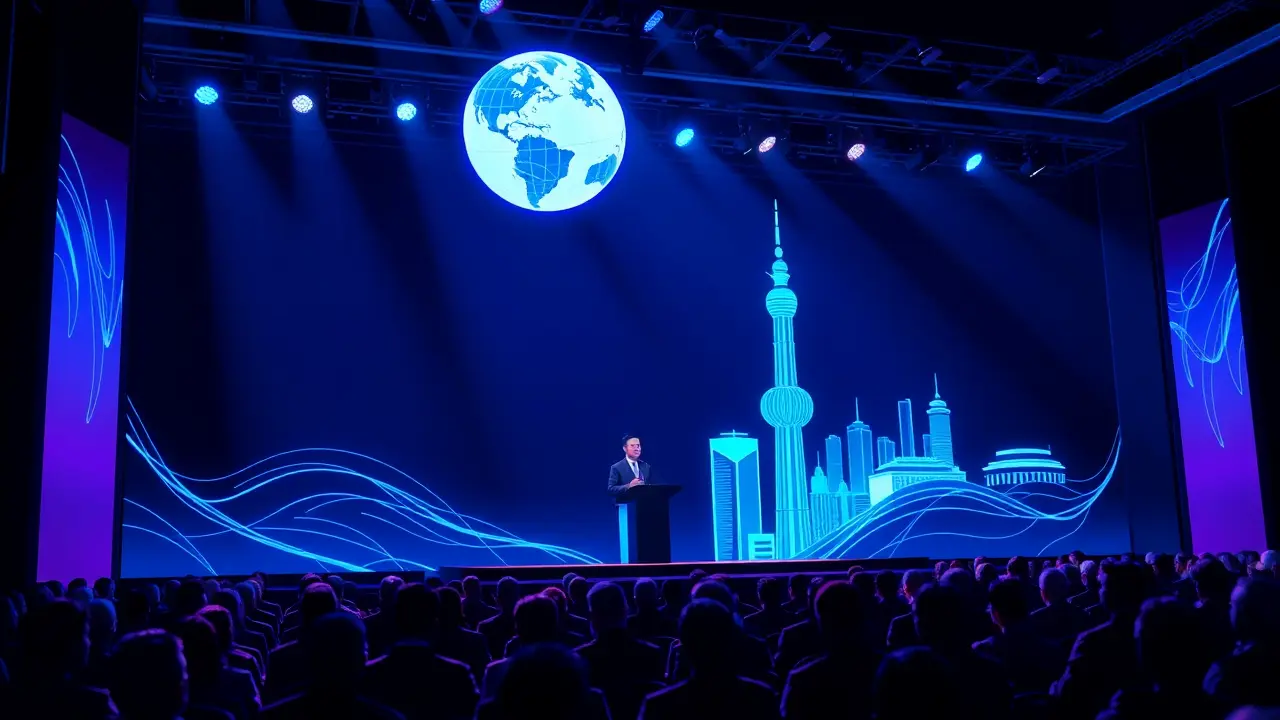
Politicssanctions & tradeTrade Deals
Premier Li Qiang promotes US-China trade pact at CIIE.
RO
Robert Hayes
10 hours ago7 min read
In a move echoing the grand diplomatic overtures of a bygone era, Premier Li Qiang took the stage at the eighth China International Import Expo in Shanghai, delivering a keynote address that was less a simple speech and more a strategic gambit on the global chessboard. For the third consecutive year, he stood before hundreds of government officials and international business leaders, a figure attempting to project unwavering confidence amidst growing international headwinds.His core message, meticulously crafted, was a multi-pronged assault on the prevailing narrative of China's economic deceleration, promoting free trade, actively courting foreign investment, and, most significantly, placing a renewed emphasis on the trade pact with the United States. This was not merely an opening ceremony; it was a statecraft performance, reminiscent of historical efforts to bridge chasms between superpowers, where economic forums become the staging grounds for political realignment.The CIIE itself, the world's largest import fair, serves as a potent symbol of China's stated commitment to global economic integration, a counterpoint to accusations of isolationist tendencies. Yet, seasoned analysts watching the address would have noted the subtext beneath the platitudes of cooperation.Li's need to 'soothe concerns' is a tacit acknowledgment of very real anxieties—a property sector crisis, local government debt, and subdued consumer confidence—that have foreign investors nervously reevaluating their exposure. Highlighting the US-China trade deal, a relic of a pre-pandemic, pre-intensified tech-war era, is a calculated attempt to find a sliver of common ground, a fragile thread connecting two economies increasingly defined by their competition.One can draw a parallel to Churchill's famed 'Iron Curtain' speech, which defined an era of division; Li's speech attempts the opposite, to rhetorically dismantle walls, even as concrete ones are being erected in semiconductor and AI sectors. The success of this overture hinges not on the elegance of the prose in Shanghai, but on the reception in Washington and boardrooms from Frankfurt to Tokyo.Will the promise of market access and a reaffirmed trade pact be enough to offset the perceived political risks? The CIIE, therefore, is more than a trade fair; it is a barometer for the global business community's faith in China's next chapter, a test of whether Premier Li's reassurances can resonate with an audience increasingly attuned to the drumbeat of de-risking. The consequences are profound, shaping not just supply chains but the very contours of 21st-century geopolitics, determining whether economic interdependence can persist as a stabilizing force or fracture into competing blocs.
#featured
#China
#Premier Li Qiang
#CIIE
#US-China trade
#free trade
#foreign investment
#economic address
Stay Informed. Act Smarter.
Get weekly highlights, major headlines, and expert insights — then put your knowledge to work in our live prediction markets.
© 2025 Outpoll Service LTD. All rights reserved.